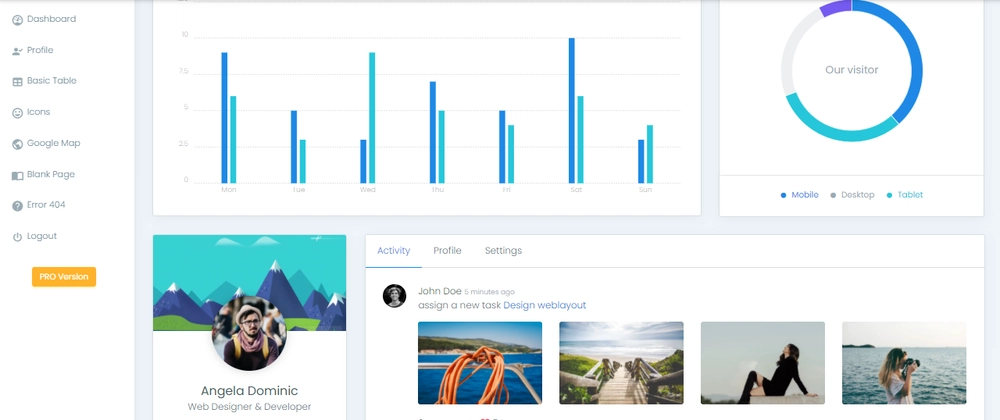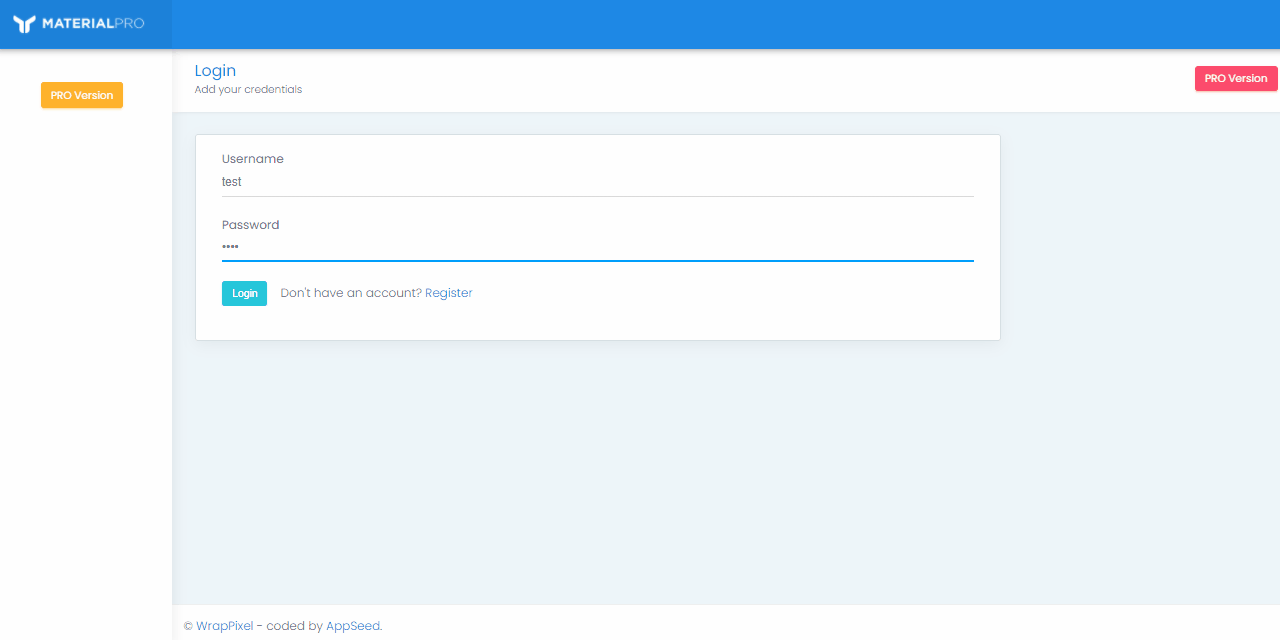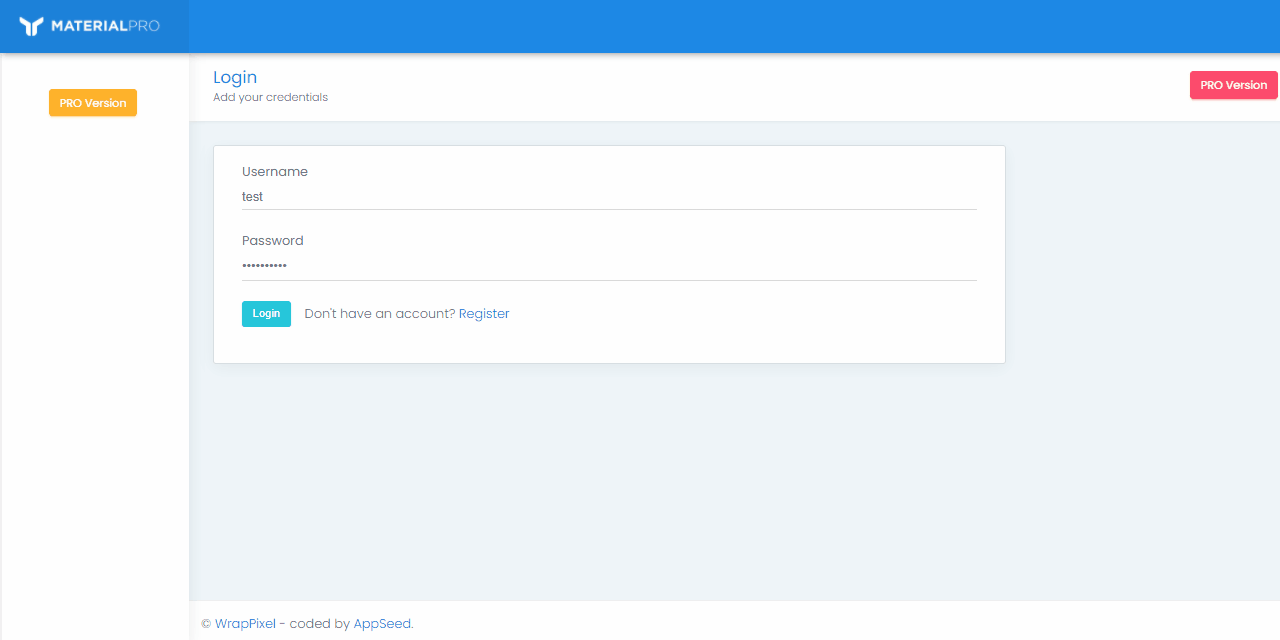Hello Coders,
This article presents two freebies generated by the AppSeed platform on top of a free Material Dashboard design - MaterialPro Lite. Both starters are provided with authentication, database, ORM, deployment scripts, and the permissive license allows the usage for unlimited hobby & commercial projects.
Thank you for reading! Please find below the relevant links:
- Material Dashboard - Flask (product page) - LIVE Demo
- Material Dashboard - Django (product page) - LIVE Demo
- Support via Discord and Github (issues tracker)
Material Dashboard - UI Kit
The UI is inspired by Google Material design principles and comes integrated with the essential Bootstrap components and pre-built pages (dashboard, tables, login, register, user profile).
Being a free product we can use it without restrictions in a low budget project.
What's in the (UI) box?
- UI Components, Widgets
- Pre-built pages
- SASS files to customize the UI with ease
- Table samples
- Google Maps plugin.
UI Vendor Notes - MaterialPro Bootstrap Lite is one of the best Bootstrap templates for admin dashboards and control admin panels. This powerful and competent Bootstrap 4 admin template is based on HTML and is built with the CSS framework. Inspired by Google Material design principles and integrated with the essential Bootstrap components and UI elements, the all-new and comprehensive MaterialPro Bootstrap Lite from WrapPixel has a lot to offer to you.
MaterialPro Bootstrap Lite is one of the best free bootstrap website templates and comes with a host of easy to use features and plugins that make it perfect for even novice developers.
User profile page
UI Icons Page
Login page
Material Dashboard Lite - Flask
Flask version is a simple project with the UI already integrated with Jinja and other features like authentication, ORM, Blueprints, and deployment scripts.
In case anyone likes this material design and decided to use the project, only a few commands typed in the terminal are required.
PS. Make sure you have Python3 installed before compiling the project.
Step #1 - Clone/download the project
$ git clone https://github.com/app-generator/flask-dashboard-material-lite.git
$ cd flask-dashboard-material-lite
Step #2 - Install modules
$ virtualenv env
$ source env/bin/activate
$
$ # Install modules - SQLite Database
$ pip3 install -r requirements.txt
Step #3 - Start the app
$ # Set the FLASK_APP environment variable
$ export FLASK_APP=run.py
$
$ flask run
By default, Flask embedded server starts on port 5000. We can change this default value by using --port argument:
$ flask run --port=5003
$ # App sill start on port 5003
Once the app runs in the browser, create a new user using the registration page and log in.
Material Dashboard Lite - Django
Django version is basically identical in terms of features (authentication, SQLite database, deploy scripts) and super easy to set up and compile.
I will assume that your environment already has Python3 installed and jump to the build instructions (extracted from the README file)
Step #1 - Clone/download the project
$ git clone https://github.com/app-generator/django-dashboard-material-lite.git
$ cd django-dashboard-material-lite
Step #2 - Install modules
$ virtualenv env
$ source env/bin/activate
$
$ # Install modules - SQLite Storage
$ pip3 install -r requirements.txt
Step #3 - Start project
$ # Create tables
$ python manage.py makemigrations
$ python manage.py migrate
$
$ # Start the application (development mode)
$ python manage.py runserver
At this point, if all goes well, we should be able to visit the app in the browser:
Sometimes, using a tested seed project already enhanced with basic modules might help us to move fast and start coding the features specific to a single project.
Thank You! Let me know your thoughts in the comments.
Btw, my (nick)name is Sm0ke and I've built AppSeed, a platform used by 2k+ developers.








Top comments (0)